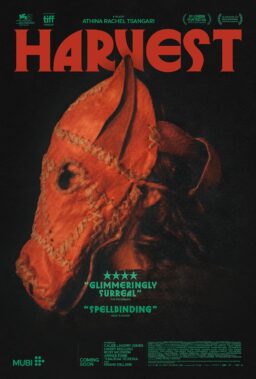Bob Hope, who has died at 100, became such an American icon that his mere presence made people smile. That was the lesson I learned one day in 1980, when I joined him aboard a private jet after he’d made a personal appearance.
The World Book Encyclopedia had chosen Hope as its Man of the Year. My assignment: Interview him. Sun-Times columnist Irv Kupcinet talked to him constantly, and gave me the number of his assistant, Ken Kantor. Hope was quickly on the line: “I have to fly up to San Francisco to appear at the Anheuser-Busch stockholder’s meeting. Meet me there and we can fly back to Burbank on the Budweiser jet.”
Our talk touched on the quality of his fame. He had long since surpassed the categories of movie star, radio-TV star, standup comic, recording artist, and had become a spokesman for–well, Hope. Not just Hope the man, but hope the quality, since his never-failing ebullience was a tonic for his audiences, especially the countless servicemen he entertained on battlefronts and at far-flung outposts.
When I asked him what he had done at the stockholder’s meeting, he said he had walked onstage and surprised company head August Busch. Just that, essentially. His presence was a recognition of Busch, and the company, and the audience, and he got a standing ovation–and at his age, he observed, standing ovations were a good reason to get up in the morning.
Hope’s best films included “The Cat and the Canary” (1939), “My Favorite Blonde” (1942), “The Road to Morocco” (1942) and “The Road to Utopia” (1946), which were the best of the Road movies, “Paleface” (1948) and “Son of Paleface” (1952), and “Monsieur Beaucaire” (1946). The Paleface movies co-starred Jane Russell, and a Hope trademark was the proximity of a sexy girl who seemed forever out of his reach. He specialized in asides to fellow cast members and the audience, and created a character who was often a dauntless coward. In “Road to Utopia,” he walks into a rough and tough Alaska saloon and orders a lemonade. When the grizzled miners look offended, he snarls, “In a dirty glass!”
The quality of Hope’s films had flagged by the time I came on the movie reviewing scene. His last starring role in a theatrical film was in 1972, with “Cancel My Reservation.” I wrote that it wasn’t remotely funny, “unless you are a ’50s freak and do not find it amazing that a 1972 movie should have references to Bing Crosby’s golf game and the $64,000 Question.”
But he had once been a cutting-edge movie comedian, valued by Woody Allen as the best of his time. His one-liners invented the standup routines later perfected by Carson, Leno and Letterman. He paired with Crosby in the “Road” pictures, which pointed the way for Martin and Lewis, who were essentially playing the same two characters. And he didn’t tell the same old jokes over and over but had a legendary stable of writers who supplied new topical humor from the day’s headlines–a technique later adapted by Mort Sahl, Dick Gregory and a whole school of young standups who followed them, including Jay Leno.
Hope created the modern definition of the Academy Awards host; before Hope, the Oscar emcee was just that, a master of ceremonies, and after Hope the job became a role, filled by Carson, Crystal, Martin and all the others. He emceed the Oscars for the first time in 1939, and did it 18 times between then and 1977, when, in the aftermath of Vietnam and Watergate, his upbeat wisecracks seemed dated. He never won an Oscar, except for an honorary one, inspiring his famous line: “At my house, the Oscars are known as Passover.”
Before the 1967 show he told me the most dramatic Oscar moment was in 1961, when Elizabeth Taylor won for “Butterfield 8,” after having narrowly escaped death with an emergency tracheotomy.
“That was the year she had been critically ill, and it wasn’t known until the last minute whether she’d even attend the ceremony. When her name was called and she stood up and walked toward the stage, everyone held his breath, waiting for her to collapse, but she made it. What a woman!” he said, and, being Bob Hope, couldn’t help adding: “In fact, she even made it to the party afterward.”
He lived so long that younger generations barely know who he was. One of the richest men in Hollywood, he lived for years in the same comfortable but scarcely palatial house in the Toluca Lake neighborhood of the Valley. When we landed at the Burbank airport, he got into his own car and drove himself home. For anyone old to have known him in his prime, he was a legend, an institution–and a very funny man.
All the obituaries will end the same way, and so will mine.
Thanks for the memories.
(Copyright World Book, Inc.)











